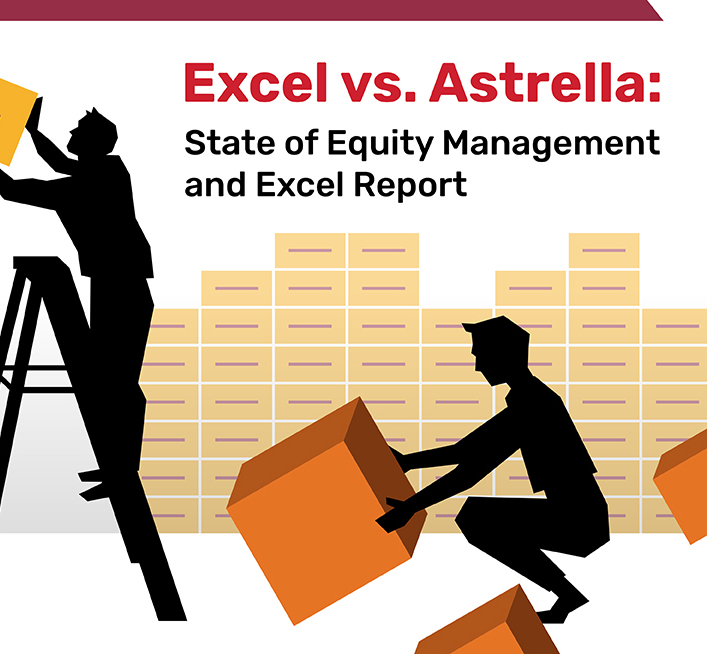Regarding corporate finance transactions, special purpose vehicles (SPVs) are becoming increasingly popular to manage risk and minimize liability for a parent company. An SPV is a separate legal entity that can be used in various ways to facilitate different financing or other business activities. In this article, we will explore what an SPV is, provide examples of how they are used, discuss the advantages and disadvantages of using an SPV, and ultimately give the readers the information they need to make informed decisions about whether or not to form one.
What Is a Special Purpose Vehicle (SPV)?
A SPV is a distinct legal entity created for a specific purpose. It is often used to facilitate corporate finance transactions, mitigate risk, and shield parent companies from liability. An SPV enables businesses to isolate the risks associated with specific activities and separate the assets, liabilities, and income generated by an SPV from those of its parent company.
Typical uses of SPVs include real estate investments, securitization transactions, and bankruptcy reorganizations. These complex financial operations may require additional legal protection or special financing arrangements. Companies can protect their investments by creating an SPV without putting the entire business at risk.
SPVs have no employees and are usually managed by a board of directors or a trustee. This allows them to operate independently from the parent company while supporting business activities such as managing accounts receivable or executing contracts.
The advantages of using an SPV include improved asset protection for a parent company’s investments, increased flexibility in financing arrangements, reduced liability exposure, lower overhead costs compared to other entities, tax benefits, and improved asset liquidity through the sale or transfer of ownership interest in the entity.
However, there are also downsides to using an SPV, including potential conflicts with existing laws governing corporate activity, difficulties in obtaining financing since banks view these entities as higher-risk investments, and added complexity when it comes to bookkeeping since assets must be tracked separately from those held by the parent company.
Ultimately, before deciding whether or not to form an SPV, companies must carefully consider all the available options and ensure they understand both the risks involved and any potential rewards that could result from establishing this type of entity. With this information, readers can make informed decisions about whether forming an SPV suits their business needs.
Examples Of SPVs
SPVs offer a range of potential benefits to corporations, providing financial flexibility and asset protection from creditors. SPVs typically take the form of a corporation, trust, partnership, or limited liability company, depending on their purpose. For example, a corporation may be used for public trading or long-term investments, while a trust is more suitable for estate planning. On the other hand, a partnership is well-suited for joint ventures, and limited liability companies can help entrepreneurs limit personal liabilities while taking advantage of tax benefits.
In the United States, Special Purpose Vehicles are regulated by federal laws like SOX (the Sarbanes-Oxley Act of 2002). This law sets standards for all publicly traded companies regarding financial reporting accuracy and enforcement of regulations. It also requires these organizations to regularly review their internal controls and processes as part of fraud prevention efforts. Moreover, some states have additional laws that guide the formation and management of an SPV accordingly.
Companies should consider their objectives and legal requirements when deciding whether or not to create an SPV. Engaging an attorney specializing in corporate law is recommended to ensure all necessary steps are taken during this process. Furthermore, financiers must evaluate if they’re comfortable with risk exposure before entering into agreements regarding investments made by the parent company or other shareholders involved in the transaction.
An SPV can offer advantages such as increased asset protection from creditors while allowing access to financing sources otherwise unavailable due to regulatory restrictions or high-risk exposure associated with certain activities or investments. However, there may be conflicts between existing laws that could result in difficulties obtaining financing – making it essential that businesses assess these issues carefully before committing to this type of financial vehicle solution based on their business needs.
Advantages Of Using An SPV
Using a SPV is becoming an increasingly popular way for companies to raise capital and finance projects without affecting the parent company’s credit rating. By forming this entity type, businesses can restructure debt, separate assets for financing or tax purposes, and shield the parent company from liability. Here are some of the distinct advantages associated with using an SPV:
Asset protection is one significant advantage that comes with utilizing an SPV. Companies can use it to isolate their assets from liabilities to protect them from creditors or other risks. This is especially beneficial for organizations that hold large amounts of debt or are exposed to substantial litigation threats. Moreover, businesses can reduce their legal exposure by avoiding direct control over the property or project.
An additional benefit is increased flexibility when it comes to funding options. By setting up an SPV as a subsidiary instead of part of the parent company’s structure, companies can access alternative sources of capital, such as venture capital or private equity funds that might not otherwise be available – making it easier for them to get needed money without having to take on more debt or give up control over their operations.
The costs associated with corporate finance transactions like taxes and legal fees can also be significantly reduced using an SPV since all deals will occur within one entity – eliminating the need for multiple contracts and documents, saving time and resources in the long run. Additionally, asset liquidity is improved by simplifying transfers between entities while bypassing certain restrictions, such as taxes imposed on capital gains.
In conclusion, several advantages of using a Special Purpose Vehicle include asset protection, increased flexibility in financing arrangements, lower overhead costs due to fewer contracts and legal documents required per transaction, tax savings opportunities, and increased asset liquidity. Companies need to weigh all possible options before deciding if this option works best for their organization – consulting with a corporate law attorney may prove invaluable during this decision-making process.
Disadvantages Of Using An SPV
SPVs can provide several advantages for companies. However, there are notable disadvantages to consider as well. Setting up and maintaining an SPV can be costly, as the business must account for legal and administrative charges associated with the process. Additionally, if too much debt is taken on due to forming the SPV, it could lead to penalties from regulatory bodies due to a breach of the corporate debt limit.
For investments that involve high levels of risk, an SPV may not be suitable either. Finding sources to finance such ventures often proves difficult; even when successful, companies may bear the burden of high-interest rates on any loans obtained. Moreover, having multiple SPVs in operation can create a complex network between parent companies and subsidiaries, making tracking liabilities and assets more challenging.
Consequently, businesses should consider all possible options before deciding whether or not they will form an SPV. They should evaluate potential risks such as increased expenditure, financing difficulties, liability troubles, or conflicts with pre-existing laws against likely advantages to make an informed decision concerning their best course of action. Consulting a corporate lawyer specializing in this type of transaction is crucial for ensuring all proper steps are taken before setting up an SPV.
Conclusion
In conclusion, SPVs offer several advantages to businesses looking to gain more control over their finances or reduce their liabilities. These include increased control of assets, reduced costs, tax efficiency, and risk mitigation. Readers need to know the potential risks of forming an SPV, such as complexity and ongoing maintenance requirements.
We recommend that companies seeking to form an SPV seek expert advice to guarantee that all legal and financial obligations are fulfilled. Additionally, they should consider the risks carefully before making any final decisions.
SPVs can be an excellent option for many companies looking to manage their finances more effectively or shield parent companies from liability. However, it is essential to remember that there are many considerations when deciding whether or not this is the right choice for them. By understanding the benefits and drawbacks of forming an SPV, readers can determine what is best for them and their business.

Tom Kirby
Tom Kirby serves as the Head of Global Sales at Astrella. With more than 20 years of experience in sales and business development, he is dedicated to fostering strong client relationships and assisting both private and public companies in understanding and effectively communicating their value.
- Tom Kirby#molongui-disabled-link
- Tom Kirby#molongui-disabled-link
- Tom Kirby#molongui-disabled-link
- Tom Kirby#molongui-disabled-link
































































































































